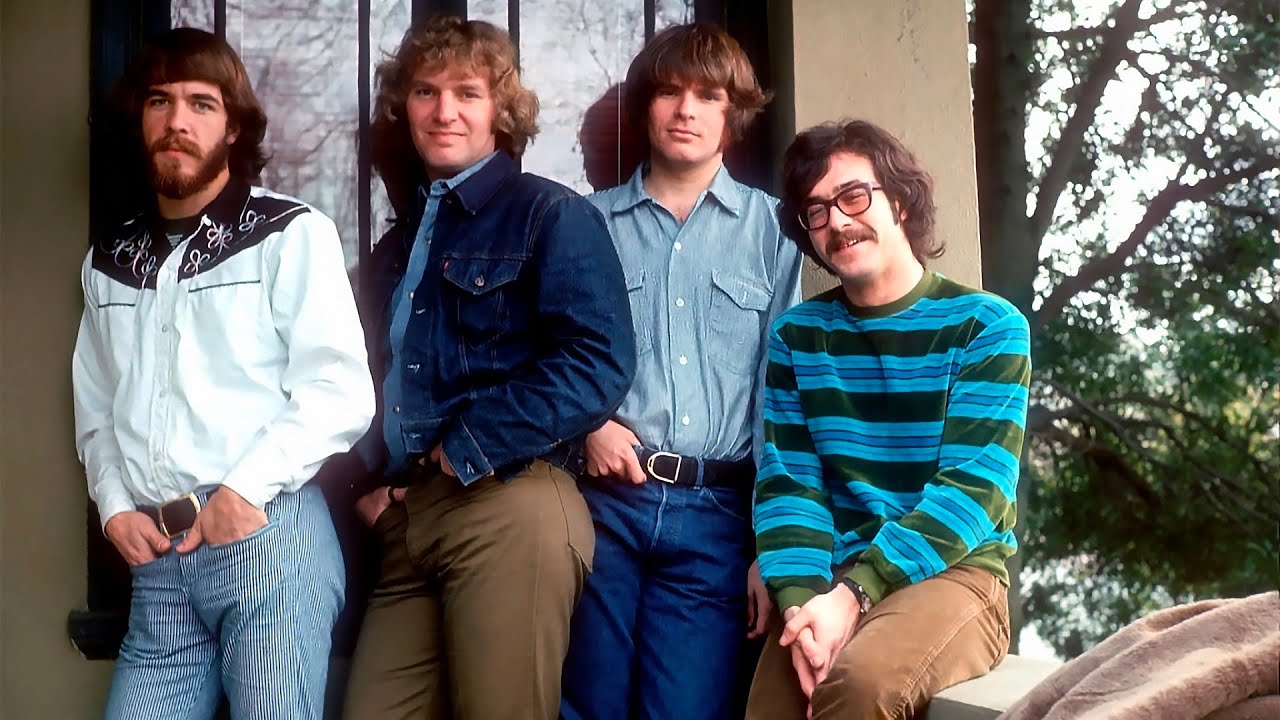
“Sweet Hitch-Hiker” is CCR’s two-minute daydream of escape—when the road looks kinder than the room you’re in, and motion feels like the only honest medicine.
“Sweet Hitch-Hiker” arrives with the snap of a screen door and the sudden rush of warm air outside. It’s one of those Creedence Clearwater Revival records that doesn’t “build” so much as move—already rolling, already leaning south, already halfway out of town before you’ve fully sat down with it. Written by John Fogerty, it was released as a single in the summer of 1971 (issued on Fantasy) with “Door to Door” on the B-side. In American pop terms, it peaked at No. 6 on the Billboard Hot 100, becoming CCR’s final Top 10 hit—an important timestamp, because it marks the last moment when the band’s name still felt like a guarantee on the singles chart.
What’s quietly fascinating is where the song sits in the band’s story. “Sweet Hitch-Hiker” was recorded after Tom Fogerty had left the group, making it a Creedence performance by the trio of John Fogerty, Stu Cook, and Doug Clifford—still tight, still propulsive, but already carrying the invisible knowledge that the machine was changing shape. The single would later be included on the 1972 album Mardi Gras, a record that has its own complicated reputation, yet this track often stands out as a last clean burst of that classic Creedence stomp.
Across the Atlantic, the song’s chart story is more modest but still telling: on the UK’s Official Singles Chart, “Sweet Hitch-Hiker” reached a peak of No. 38. That number doesn’t diminish the song—it almost suits it. “Sweet Hitch-Hiker” has never felt like a carefully tailored pop bid; it feels like something tossed into the wind with a grin, built to sound great coming out of a car speaker with the windows down, not necessarily to flatter every radio format in every country.
And then there’s the deeper, quieter magic: what the song is about beneath its cheer. On the surface, it’s a postcard—“I’m goin’ down south” energy, a quick sketch of leaving, of moving, of imagining the next horizon as cleaner than the one behind you. But CCR’s best “road” songs always carry a second meaning. The road isn’t only geography; it’s psychology. It’s that familiar human impulse to believe that if you can just get out—out of the argument, out of the job, out of the pressure, out of your own looping thoughts—your life will start breathing again.
Musically, the record is almost aggressively economical: under three minutes, no wasted scene-setting, no indulgent detours. The groove is the message. It shuffles forward with that unmistakable CCR bounce—part boogie, part bar-band grit, part radio precision. The guitar bites without showing off. The rhythm section doesn’t decorate; it drives. The whole performance feels like a hand on the wheel, steady and impatient at once: not reckless, but very sure it has to go somewhere.
The title image—this “sweet hitch-hiker”—glows like a symbol more than a literal person. A hitch-hiker is someone who trusts movement, who lives between destinations, who makes a life out of transition. In that sense, the song flirts with freedom as a fantasy: the idea that you can reinvent yourself simply by changing scenery. And yet Fogerty’s delivery carries a hint of knowingness too, as if he understands the bittersweet truth: you can leave town, but you can’t always leave yourself.
That tension—bright rhythm, slightly haunted subtext—is why “Sweet Hitch-Hiker” stays so listenable decades later. It doesn’t ask you to be young. It doesn’t ask you to be carefree. It just gives you two minutes and change where the world feels lighter, where the next mile feels possible, where the past shrinks in the mirror for a moment. And if you listen closely, you can hear the deeper promise tucked inside the stomp: not that the road will fix everything, but that motion—sometimes—can keep hope alive long enough to make it to morning.